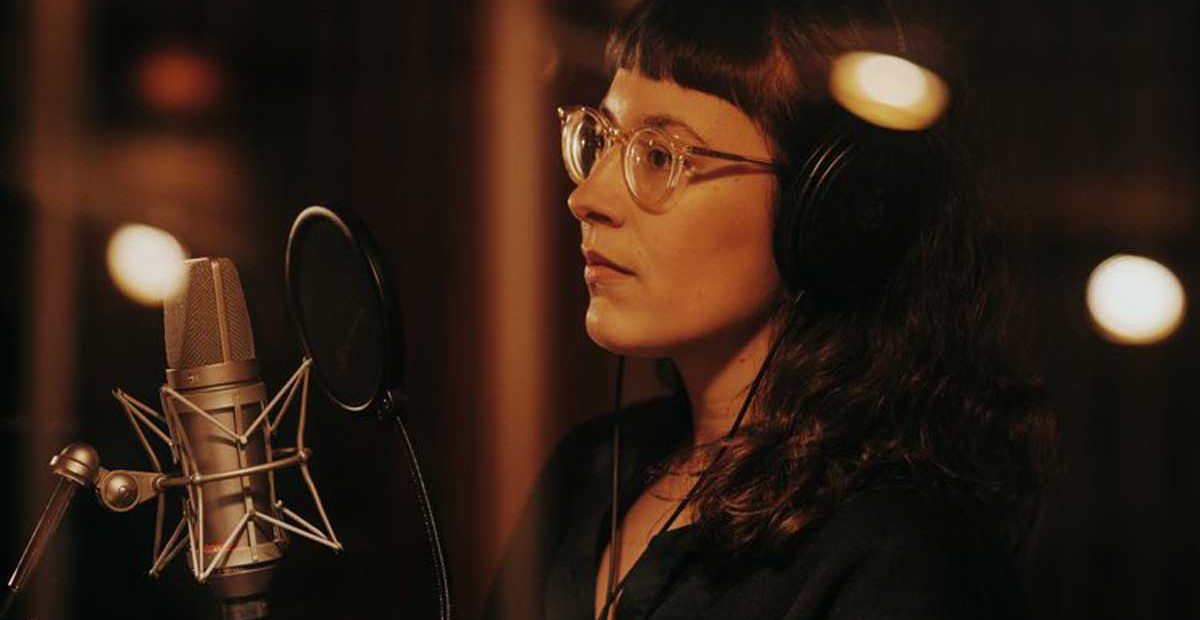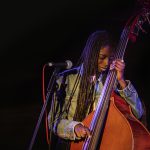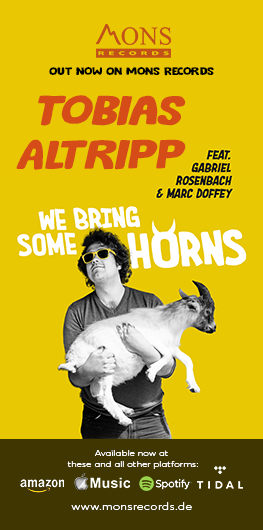Berlin, a city known for its rich musical tapestry, has nurtured diverse talents that continue to push the boundaries of jazz artistry. Among these is the Bosnian-Slovenian Mirna Bogdanovic, a remarkable jazz vocalist and composer whose creative odyssey has drawn the attention of audiences’ and critics alike. Recently, her sophomore album “Awake” was released on Berthold Records, weaving a mesmerizing tale that harmoniously fuses jazz with other influences creating in the the words of Jazz In Europe reviewer, Jan Veldman “… a statement from artist who defiantly has something to say and is not afraid to open her soul to those who dare to listen.”
Bogdanovic’s life story bears traces of resilience, having migrated to Germany as a young child to escape the Bosnian War. “The impact this had on my childhood was huge,” she reflects. While it didn’t directly shape her music, it imbued her with a profound sense of perspective and empathy, subtly influencing her creative journey. Intriguingly, Bogdanovic’s lyrical narratives delve into real-life situations, relationships, and emotions. “The lyrics are very autobiographical,” she reveals with a touch of vulnerability. She acknowledges the courage it takes to lay bare her emotions, as her lyrics offer glimpses into her personal world. “It feels weird thinking that everyone now knows my deepest secrets,” she admits, reflecting on the inherent exposure that comes with lyrical candor.
I recently caught up with Mirna to discuss the album as well as delve deeply into the background of this emerging artist.
Bogdanovic reminisces about her musical roots. “My father is a musician, so there was always music in the house,” she shares. Encouraged by a neighbor who was a piano teacher, she embarked on a journey that would encompass 12 years of classical piano training. Her transition from classical piano to jazz vocals unfolded organically. She admits that at first she didn’t really understand what was going on musically however, her determination to master the art form gradually led her to fall in love with jazz, a passion that continues to drive her to this day.
Andrew Read: Hi Mirna, thanks for joining me today. Can we start by speaking a little about how you became involved with music and in particular jazz? And also, what prompted your change from Classical Piano to Jazz Vocals?
Mirna Bogdanovic: My father is a musician so there was always music in the house. I started playing piano because our neighbour was a piano teacher and she told my parents I should sign up for music school. So I did and she ended up being my piano teacher for about 12 years! Next to classical piano I was singing in a bunch of rock & pop bands and I started to get bored pretty quickly with the repertoire & the repetitiveness. We always played everything in the same way and I kind of missed the complexity and harmonic richness in the music (that I’ve been playing on the piano). So I somehow got into jazz. At first I didn’t understand it at all and thought ‘let me just learn this art form and then I can do whatever music I want with this knowledge, on a higher level’. Then a few years later, studying jazz, I fell in love with the music and haven’t looked back ever since.
AR: In the press release for the new album I read that you came to Germany as a 2-year-old with your parents to escape the Bosnian War. How did this impact your childhood and does this play a role in your music and compositions.
MB: Yeah, The impact this had on my childhood was huge but I didn’t notice it that much at the time. I now realize it was passed on to me through my parents in different forms. Now as an adult, away from home, reflecting on everything I realize it more – how it impacted my parents, how they acted because of that, my own personality traits and working ethics. It doesn’t really play a role in my music though.
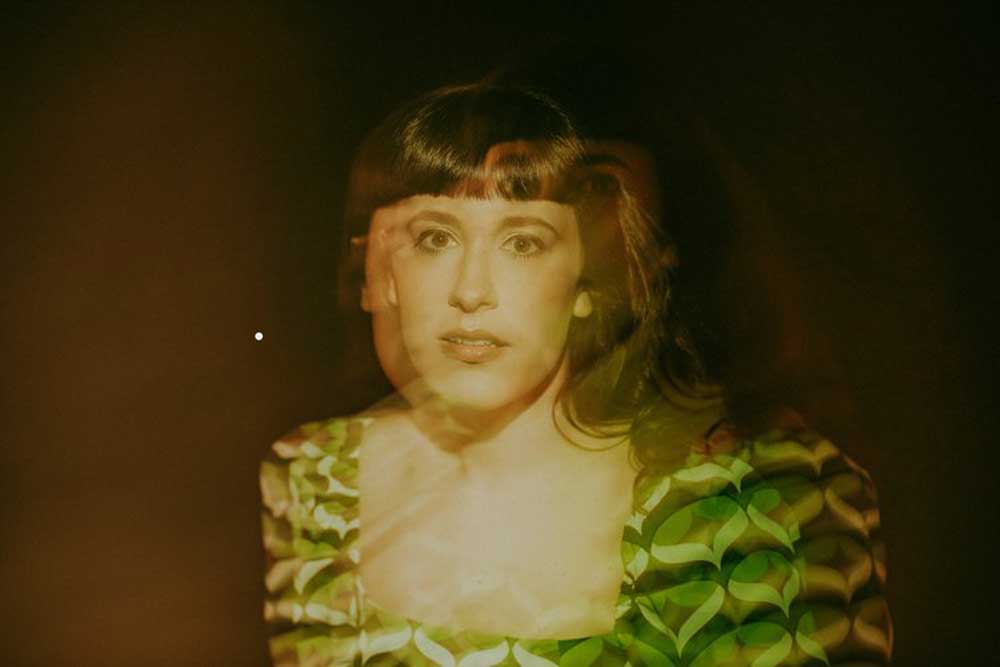
Photo by Dovile Sermokas
AR: When I listen to your music, from a lyrical perspective it deals a great deal with real life situations, relationships and emotions. How Autobiographical are the lyrics?
MB: The lyrics are very autobiographical. They’re basically my diary!
AR: We’ll I thought that but I had to ask. It must taken a lot of guts to put that out there. How do you feel about this?
MB: Thank you! Yes, it feels a bit weird thinking that everyone now knows my deepest secrets. Like my ex or my parents – that’s the worst. But I needed to be honest. It was a way to process the things I was dealing with, but also, I wanted to be able to transcend those emotions through singing and it’s hard to do that with something you haven’t experienced before or feel indifferent about.
Bogdanovic’s classical training shines through her composition process. Her track “May,” for instance, offers glimpses of her classical background’s influence. This fusion of influences allows her to craft compositions that are simultaneously complex and accessible, bridging the gap between contemporary jazz and art-pop.
The latest album is quite complex from a production perspective and I was interested to know how this translates live. She explains how her core quintet contributes to interpreting her compositions on stage. We also touched on the attention she focused on the production of the video content that accompanies the release, which she sees as essential in today’s visual age, expanding the storytelling aspect of her music.
AR: How does your classical background affect your composition process. In the press release you mentioned this briefly relating to the track “May” (“I was playing a lot of Debussy and Chopin. The piece is dissonant but with a pretty sounding harmony. Debussy creeps in though not intentionally.”) can you elaborate on this?
MB: I think that when writing music, if you don’t try to write in a very specific way (with a specific concept in mind) but just let everything that’s in the back of your head flow intuitively, you’re left with a mash-up of music you’ve been listening to throughout your life. So if you had been listening to Britney Spears on repeat your whole life, you’d probably start writing songs that sound like Britney at some point. So in my case, I played classical music for such a long time so there is information stuck in the back of my head and there’s also muscle memory in my fingers from the classical days. Meaning I have certain subconscious tendencies in terms of voice leading, harmony, some structures/patterns… ‘May’ sounds a little like it was written in the time of ‘romanticism’, I was playing a lot of that at the time, so I guess that muscle memory or some sort of colour stayed with me.
AR: When you listen to the music the compositions are quite complex yet at the same time, still very accessible. How do you go about finding this balance?
MB: I’m trying not to think too much about that when writing music. It happens naturally, really. As I’m often very bored with your typical “vocal song” I need a challenge. I love instrumental music, so I thought, why not make an album that consists of both so there’s a bit more variety in the compositions.
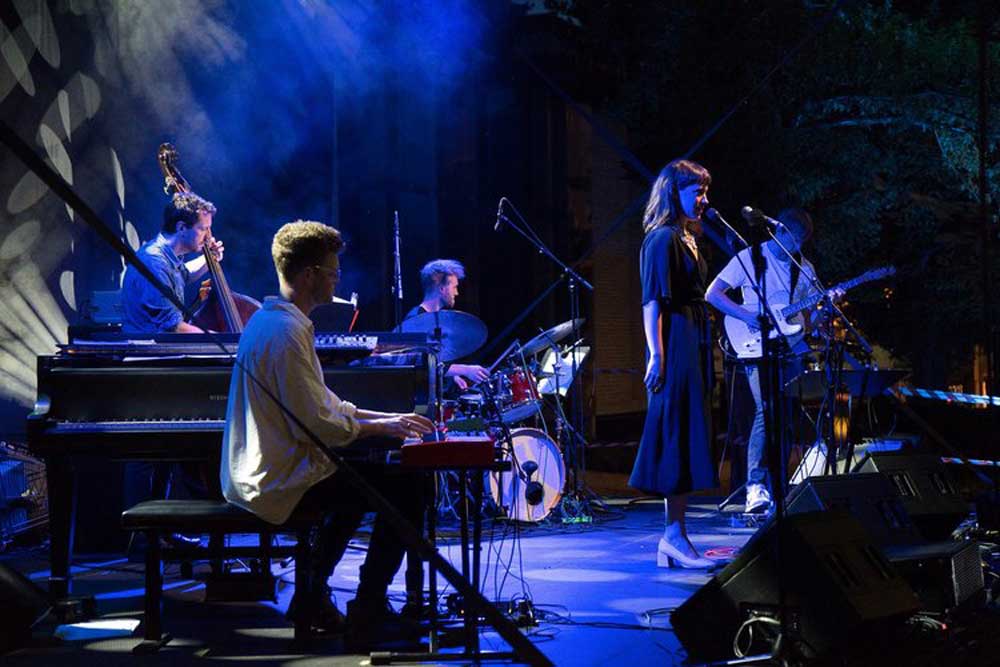
AR: In the press release the music on the album is said to “bridge the gap between contemporary jazz and art-pop,” – Could you elaborate?
MB: I guess that sentence is just a fancy way of saying my music sounds like a mix of different genres that often don’t go together.
AR: Yes I get it, it was a bit of a tongue in cheek question actually!! Anyway, moving on – Both this album and the previous one were fairly complex productions. Both albums feature a core band of Piano, Bass Drums and Guitar with guest artists added. On Confrontation it was largely extra vocalists and Wanja Slavin on saxophone with some keys. On Awake its Saxophone, ukulele and a string quartet. Was it the music that dictated the line-up or the line-up that dictated the music?
MB: It was definitely the music dictating the line-up at first. But then I’d add a certain instrument that I knew OI had at my disposal and my imagination would suddenly start working, like where else could I use this instrument? So I guess it’s really a combination of both.
AR: On your website you mention your band, when you’re playing live, do you largely play with this setting and if so, how do you adapt the material from the albums to a live situation?
MB: We play with the core quintet as you mentioned above and I also play some ukulele. We had to adapt quite a lot playing the songs from the 1st album – the pianist played piano and synths and I used a keyboard that was connected to a harmonizer, so I could play the other two voices. The guitarist also used a few special effects so we were able to come pretty close to what was on the album. For the 2nd album it was way easier as almost everything can be played as on the album, but just in a smaller like-up.
AR: I really like that you’ve paid attention to producing some great videos, I’m speaking of the music videos here and not the live in the studio material. Can you tell me about the concept and production process for these and do you feel that producing these narrative form videos add to the story telling aspect of the music?
MB: Thank you! I think nowadays visuals can help reach more people, it just catches the audience’s attention more than just a straight audio stream. I was lucky to have been able to work with two really talented directors. The video for “Finding Closure” and “Wish I didn’t miss you” were directed by Alexis Rummler and the short video (song trailer) for “Dancing in the dark” was directed by Sezin Ertek. Both directors came up with the ideas after listening to the music and it was exciting to see how they envisioned my music.
There’s little doubt that Mirna is now firmly established as an emotive songwriter, award-winning vocalist and performer on the Berlin and German scene in general. Reflecting on her debut album’s success, which earned her the prestigious Deutscher Jazzpreis for “Best Debut Album of the year, Bogdanovic acknowledges its impact on her career. “It definitely helped with my career in general,” she affirms, noting the opportunities and support it garnered. The prize money propelled the production of her sophomore album, “Awake.” We moved on to delve deeper into her latest album “Awake,” Bogdanovic explained its development stating “I started writing the songs for ‘Awake’ right after recording my first album,”. She went on to say that the album took shape organically, with compositions emerging intuitively. We also discussed producer Chris Hyson’s role in the album’s production, were she cited his guidance and creativity during recording sessions.
AR: Let’s speak about the new album. There is a strong link musically with the first album however, Awake seem more adventurous as far as the arrangements are concerned. Would you agree? Can you tell us how the compositions and arrangements developed for Awake?
MB: It’s interesting you’d say that, I feel like the first album was a lot crazier than the 2nd, as a lot of post-production was done by by Wanja Slavin in terms of electronics and added woodwinds. This time, most of it is my work with magic added by Chris Hyson. I started writing the songs for Awake right after recording my first album, back in 2019. I broke up with my boyfriend and needed to write something to basically distract myself. So I was working on these songs till the end of 2021, then went to the studio in January 2022. I really took my time with it and wasn’t really forcing or stressing about it. I’d sit at the piano and just play around, record myself and then transcribe myself, which is the way I usually write anyway. This time I also wrote a few songs on the ukulele, an instrument I mostly use as a compositional tool. At some point I decided to arrange for a string quartet because I love strings and I was always playing around with that thought. I learned so much! Can’t wait to do some more of that again sometime. We played a lot of the songs for quite a while before going to the studio, so the band was pretty damn tight.
AR: The album has mostly your compositions and arrangements except for “Wish I Didn’t Miss You”. What inspired the choice to include this song on the album.
MB: I don’t really know why I chose it, I just always liked that song and at some point I realized there’s only about 4 chords that repeat all the way through the song. That is a perfect aspect if you want to redo a song because you can really do anything with it. So I met up with my pianist Povel Widestrand, who was my flatmate at the time (I think this was 2020) and we arranged it together. Adding a lot more chords, making the parts more different from one another, changing the melody etc. It’s just so much fun to do that! I’ve done it with ‘Rain’ on the first album as well.
AR: Let’s speak more on role of Chris Hyson who produced the new album. What role did he play in the production of this album?
MB: Chris was in the studio with us leading the recording session from the control room. I wanted to have someone sitting there who I completely trusted taste-wise, who’s also jazz educated but doesn’t play only jazz. I thought this was important as the music is very specific/niche. So he was leading the recording session, had loads of great ideas so we recorded A LOT of layers on various instruments. Then after the tracking sessions I went to London where we cleaned everything up, decided on what to keep, what to throw out and add some different sounds, synths, effects etc.
As our interview concludes, Bogdanovic shares her plans for the future. A relaxing summer lies ahead, followed by the inception of her third album. She’s also excited about a new collaborative project with her guitarist, Peter Meyer, ensuring her mellifluous journey will continue to enchant listeners. Mirna Bogdanovic’s music transcends borders, captivating hearts with its honest lyricism, intricate melodies, and genre-blurring artistry. Her journey is a testament to the transformative power of music, reflecting life’s complexities and the beauty that emerges when they’re harmonized.
I enjoyed speaking with Mirna. She is, in my opinion, certainly an artist to keep on eye on. You can check out Jan Veldman’s review of “Awake” here and for her coming live dates check out her website here.
Featured Header Image by Dovile Sermokas
Last modified: August 31, 2023


